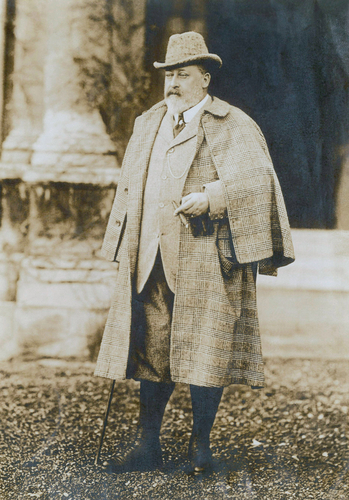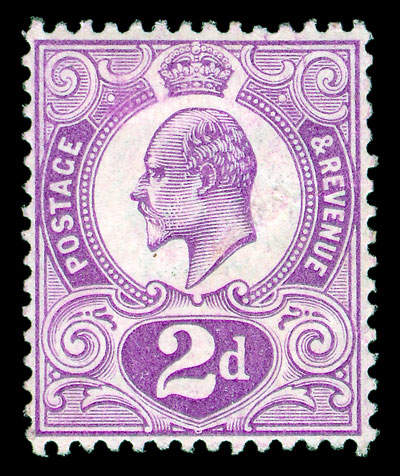A Complete Guide to Edward VII
The Reign of Edward VII
Edward VII’s reign, which lasted from 1901 to 1910, was marked by a significant shift in British monarchy and society. Taking the throne after the long-lasting reign of Queen Victoria, Edward VII sought to modernize the monarchy and strengthen diplomatic ties with other nations. His charismatic personality and love for socializing earned him the reputation of a “peacemaker” and helped improve British relations with countries like France and Russia. Despite a relatively short reign, Edward VII’s efforts left a lasting impact on the British monarchy and set the stage for future developments in the 20th century.

Early Life and Education
Edward VII, known as Bertie to his family, was the eldest son of Queen Victoria and Prince Albert. Despite being the heir to the throne, his relationship with his parents, particularly his mother, was strained. Queen Victoria was overprotective and controlling, which led to a somewhat rebellious and unconventional upbringing for the young prince.
Prince Albert, on the other hand, was a strong influence on Edward’s education. He provided him with a well-rounded education, emphasizing the importance of culture, science, and foreign languages. Edward developed a lifelong love for travel and cultural pursuits during his formative years.
The Long Wait for the Throne
Edward VII spent much of his life as the heir apparent, the Prince of Wales, with a prolonged period of waiting for the throne. Queen Victoria’s lengthy reign, which spanned from 1837 to 1901, earned her the title of the longest-reigning British monarch at that time. This period, known as the Victorian Era, was marked by its own unique characteristics, including strict social norms and a focus on moral values.
Throughout this time, Edward’s role was largely ceremonial, involving public appearances, social engagements, and diplomatic missions. Despite the limited political power he held, he used his position to foster goodwill and strengthen diplomatic ties, particularly with European nations.
The Edwardian Era: A Time of Change
Edward VII’s ascent to the throne in 1901 marked the end of the Victorian Era and the beginning of the Edwardian Era. This transition brought significant changes to British society and politics:
1. Diplomatic Relations:
Edward VII’s extensive network of royal relations across Europe played a crucial role in promoting peace and diplomacy during a time when tensions between European powers were high. His personal relationships and diplomatic efforts were instrumental in easing international conflicts.
2. Social Reforms:
Edwardian society witnessed important social reforms. Labour laws were enacted to improve working conditions, and discussions surrounding women’s suffrage gained momentum. While these changes were not fully realized during his reign, they set the stage for future developments.
3. Cultural Flourishing:
The Edwardian Era was a period of cultural flourishing, marked by advancements in literature, theater, and the arts. Playwrights like George Bernard Shaw and novelists like E.M. Forster left a lasting impact on British literature.
4. Technological Advancements:
Rapid technological advancements continued during Edward VII’s reign. The development of the automobile and the expansion of the telegraph and telephone networks transformed daily life and communication.
Edward VII’s Personal Life
Edward VII’s reign was not only characterized by political and societal changes but also by his own personal life, marked by a series of affairs and controversies. Despite his rocky relationship with his parents, he shared a deep bond with his wife, Queen Alexandra. Their marriage was seen as a symbol of unity and stability during a time of shifting social norms.
Edward VII’s extramarital affairs were widely known, and he was often criticized for his lifestyle. One of his most famous liaisons was with Alice Keppel, which continued throughout his life. Despite these personal challenges, Edward’s ability to maintain his popularity and diplomatic effectiveness remained largely intact.
The Children of King Edward VII
- Prince Albert Victor, Duke of Clarence and Avondale
- George V
- Louise, Princess Royal
- Princess Victoria
- Maud, Queen of Norway
- Prince Alexander John of Wales
Edward VII was succeeded by George V.
1910 2d Tyrian Plum Stamp
The 1910 2d Tyrian plum stamp originated from a decision in 1909 to change the design of British stamps to a mono-colour scheme. Scheduled for issue on 6 May 1910, the Tyrian plum shade was chosen for the new 2d stamp, intended to mark King Edward VII’s reign. However, the King passed away on the very day of its planned release, prompting authorities to halt its distribution. Despite efforts to destroy the stock, some sheets survived.
Only a handful of mint copies are known to exist, with one used copy in the Royal Collection. A friend of George V was able to obtain a copy of the stamp and mail it to the stamp collector Prince of Wales (as he was then) on 5 May 1910.
The stamp’s rarity and historical significance have made it highly sought after by collectors, with its value skyrocketing over the years. By 2012, a mint copy fetched £48,300 at auction, cementing its status as one of the 100 most valuable stamps globally

Conclusion
Edward VII’s reign marked a significant transition in British history, bridging the Victorian Era and the Edwardian Era. His diplomatic prowess, personal life, and impact on society have left a lasting legacy. As the “Peacemaker” of Europe and a patron of culture and the arts, he played a vital role in shaping the course of the 20th century. Edward VII’s reign was not just a bridge between two eras; it was a defining period in its own right, setting the stage for the complex challenges and transformations of the modern world.
What you should do next...
- Browse our plots to claim your title of Lord or Lady of the Glen
- Discover the masjetic Kilnaish Estate
- View our fun gifts and accessories, inspired by the Scottish Highlands